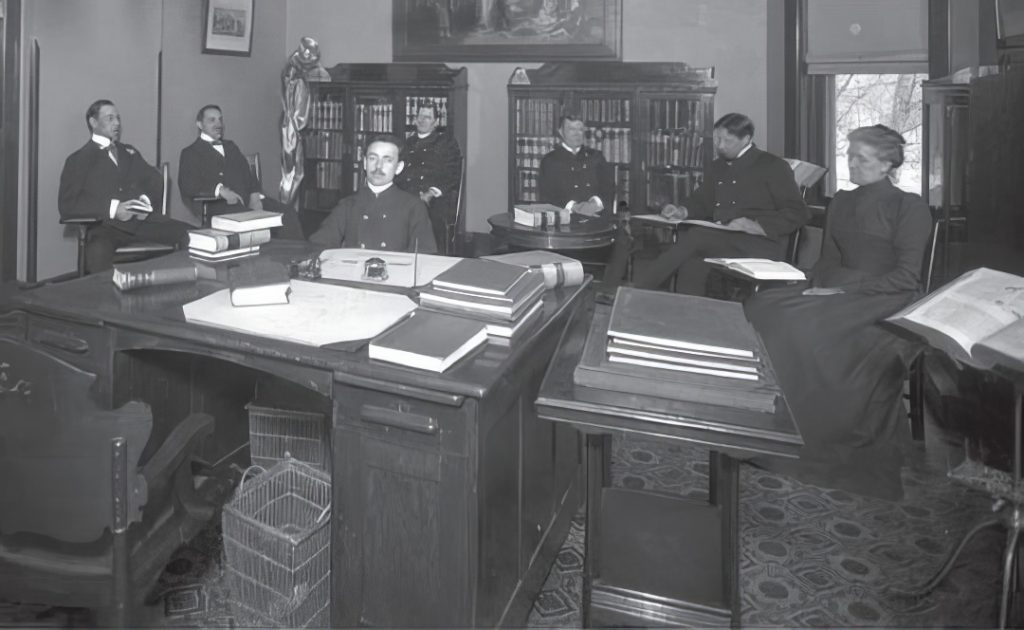(Mar. 1842-Mar. 14, 1924) Sarah Stockton was born on a farm in Lafayette, Indiana, to pioneer settlers of Tippecanoe County. She and her sister operated the Stockton Boarding House in Lafayette before she went to Philadelphia. There she graduated from the Woman’s Medical College in 1882, where she wrote a thesis about the history of insanity and the treatment of mental illness. Stockton also graduated from Female Medical College of Chicago and practiced medicine at a women’s hospital in Boston.
In 1883, , the superintendent at the Indiana Hospital for the Insane in Indianapolis appointed Stockton to the woman’s department of the facility (later renamed ). Her appointment as assistant physician merited mention by the prominent suffragist Elizabeth Cady Stanton in History of Woman Suffrage. Her exceptional performance inspired other superintendents to hire female physicians for women’s departments.

Her appointment to the woman’s department of the hospital supported then-Victorian convictions about the impropriety of male doctors performing pelvic examinations on their female patients. Champions of the women’s rights movement at that time agreed with the sentiment. Suffragist and prison reform activist Rhoda Coffin lobbied for Stockton’s appointment, noting that women needed the vote as much as they needed a woman physician to care for the “helpless of [their] sex.”
Stockton treated general ailments, like the common cold, but also specialized in gynecological disorders thought to exacerbate mental illness. During the era in which Stockton practiced, many of her contemporaries believed that reproductive organs and menstrual function correlated with mental disorders. In her 1885 “Report of Special Work in the Department for Women,” Stockton generally ascribed to this theory but noted that she did not believe the premise to hold true in all instances.
While at the Indiana Hospital for the Insane, administrators pressured Stockton to overlook dismal hospital conditions, resulting partly from lack of funding and staffing. However, she testified to the House Committee on Benevolent Institutions in February 1887, noting for example that the butter was often filled with worms. In 1889, Stockton again testified, this time in front of the investigating committee of the Hospital for the Insane about the institution’s conditions, despite dreading “the ruling powers at the hospital.” She was fired as a result of her testimony. One hospital trustee lamented her dismissal and the politics surrounding it, noting that “Dr. Stockton was the only really capable physician out there.”
She continued to practice medicine after leaving the hospital, working at Dr. Fletcher’s private sanatorium in Indianapolis (later known as Neuronhurst). In 1891, she served as physician at the Indiana State Reformatory for Girls and Prison for Women, where her duties extended to surgery. Stockton returned to Central State Hospital in 1899.
Stockton left Central State Hospital in 1923. She died a year later but not before being hailed as “one of the leading women physicians in the United States.”

Help improve this entry
Contribute information, offer corrections, suggest images.
You can also recommend new entries related to this topic.